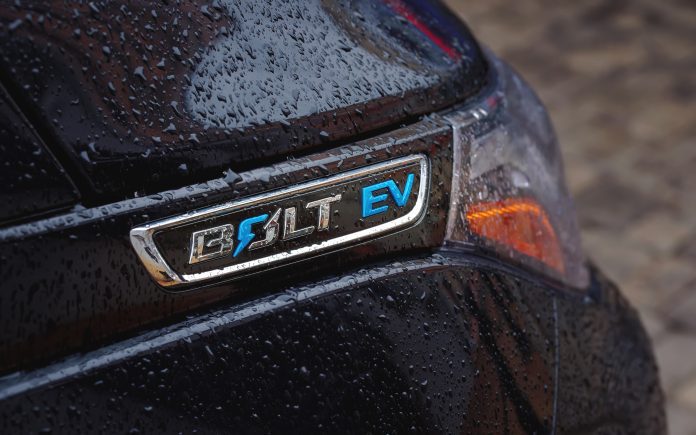General Motors (GM) has issued a new recall for 107 Chevrolet Bolt electric vehicles, targeting the 2020 to 2022 model years due to a risk of battery-related fires. This action comes three years after a more extensive recall of around 142,000 Bolt EVs for a similar issue. The company’s recent notification, documented on the National Highway Traffic Safety Administration (NHTSA) website, reveals that a software glitch, stemming from a servicing tool malfunction, may prevent drivers from receiving warnings about defective battery parts that require replacement.
The latest recall affects both the Bolt hatchback and Bolt EUV crossover models. GM, which has been re-evaluating its EV battery strategy, states that it is moving forward with the recall to address this specific software problem promptly. The automaker emphasized in a statement that it is voluntarily recalling the affected Bolt units to install the necessary software update, pledging to resolve the matter swiftly.
In addition, the recent recall connects directly to a recall from three years ago. Documents from the NHTSA reveal that a software glitch occurred due to an issue in the programming tool used during servicing for the earlier recall. This malfunction may cause the system to overlook defective battery parts that need replacement, potentially putting drivers at risk.GM’s approach aims to correct this flaw and ensure that drivers receive accurate information about their vehicle’s battery condition and any required maintenance.
In the broader context of its EV strategy, GM has been moving away from a single-battery approach for all EV models. The challenges with the Bolt recall may further influence the company’s shift in battery strategy as it seeks to build a more resilient EV platform across various model types. The recent incidents underscore the growing complexities and safety considerations of EV battery technology, particularly as automakers aim to scale production while managing associated risks.
GM’s ongoing adjustments to its battery technology indicate its commitment to refining its EV offerings amid an evolving automotive landscape. The automaker, which has heavily invested in EV innovation, remains focused on delivering secure and reliable battery-powered vehicles to meet market demands.



